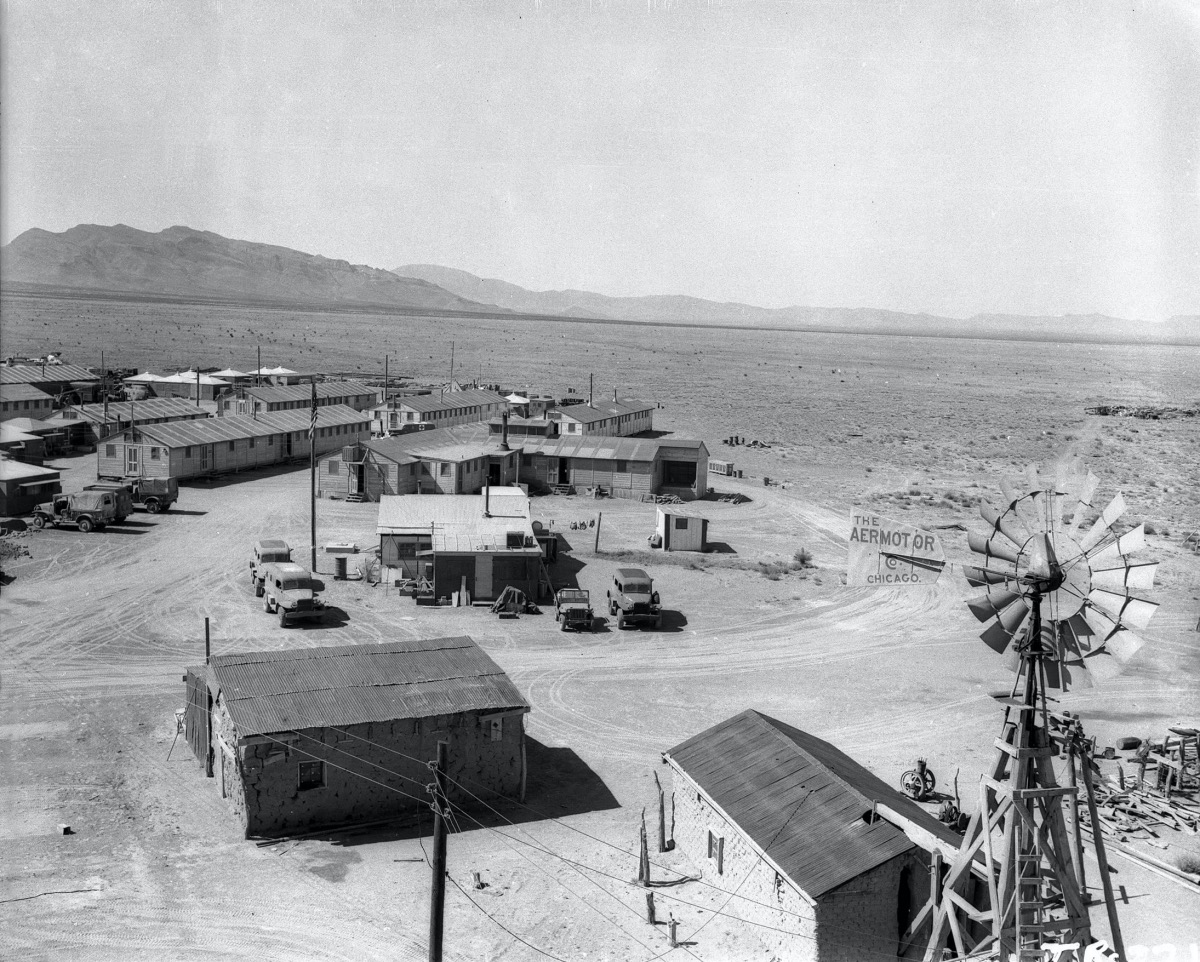
BRIDGET MOIX, general secretary of the US Friends Committee on National Legislation, says – in an article first published on Religion News Service – that the Radiation Exposure Compensation Act expires in June. It doesn’t have to…
United States
RNS
Last summer, the film Oppenheimer captured audiences the world over with its depiction of the creation of the world’s first atomic bomb at New Mexico’s Los Alamos Laboratory. The Oscar-winning blockbuster went to great lengths to show the many moral struggles of those involved. To its credit, it also did not shy away from highlighting those who had no qualms with their work and its inevitable result.
The immediate result in question was the August, 1945, bombings of both Hiroshima and Nagasaki. As many as 226,000 Japanese people, mostly civilians, were killed instantly. The radiation and fallout that followed killed many thousands more, making the total death toll all but impossible to know. These Japanese casualties came in for little notice toward the end of the movie. The film had an all but exclusive focus on the Americans who created and deployed this war technology that forever changed the world.

The Trinity Test base camp, circa May 1945, near Los Alamos, New Mexico. PICTURE: US Federal Government/Wikipedia/Creative Commons.
But there was one group of Americans who failed to get a mention at all: the casualties of the nuclear weapon development and testing at Los Alamos. Tens of thousands were adversely affected by the Trinity Test in New Mexico and the surrounding areas. The movie hinted at the possible impacts on local people but did not directly address the lasting reality of suffering for many communities.
Starting with 1945’s Trinity Test and not stopping until 1992, the United States carried out 1,032 nuclear tests in New Mexico, Nevada and both the South Pacific and South Atlantic. All these tests, in one way or another, resulted in their own casualties.
“People who lived downwind of the Trinity Test – known as “downwinders” – and those who mined the uranium for the atomic bombs were unknowingly exposed to deadly nuclear radiation and still suffer the consequences to this day.”
Our government has taken some steps to recognise and compensate those who suffered from radiation exposure, with some 43,000 people filing claims under the Radiation Exposure Compensation Act.
First passed in 1990, RECA provides compensation to those unknowingly exposed to radiation from nuclear weapons testing and/or uranium mining. The federal program provides benefits to those who have suffered directly from radiation exposure-related illnesses caused by the nuclear weapons industry.
People who lived downwind of the Trinity Test – known as “downwinders” – and those who mined the uranium for the atomic bombs were unknowingly exposed to deadly nuclear radiation and still suffer the consequences to this day.
While Oppenheimer did not address the casualties of the Trinity Test, as a nation we must, especially since RECA will expire in June. If nothing is done to extend the law, entire communities in the south-west, mid-west and west will lose crucial health coverage and cancer screenings, and many will never get the chance to apply for compensation.
These communities are at the forefront of advocating for an expansion of RECA’s coverage, and we have been honored to stand alongside them.
Since our founding two years before the Trinity Test, the Friends Committee on National Legislation has lobbied consistently against nuclear arms proliferation and for the use of diplomacy, not the threat of war, as a means of reducing arms proliferation.
In advocating for an end to nuclear proliferation, we are also called to advocate in solidarity with its victims. It is never too late for justice.
We rely on our readers to fund Sight's work - become a financial supporter today!
For more information, head to our Subscriber's page.
Fortunately, Congress now has a clear path to save and strengthen RECA if it chooses. In early March, the Senate overwhelmingly passed (69-30) the RECA Reauthorization bill (S 3853). That is a wide bipartisan total, showing how easily this issue crosses party lines, a rare and welcomed feat in Washington these days. The House now has all of May to act, knowing President Joe Biden is in support.
In accepting an Oscar for best actor, “Oppenheimer” star Cillian Murphy said: “We made a film about the man who created the atomic bomb. And for better or worse we’re all living in Oppenheimer’s world so I would really like to dedicate this to the peacemakers everywhere.”
Well said. And let us start by making sure those still impacted by atomic bombs these many decades later have what they need as they seek to heal from nuclear radiation.

Bridget Moix is general secretary of the Friends Committee on National Legislation and its associated Quaker hospitality centre, Friends Place on Capitol Hill.






